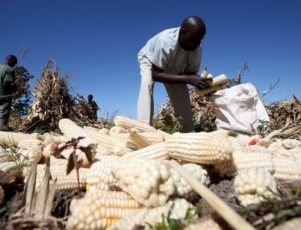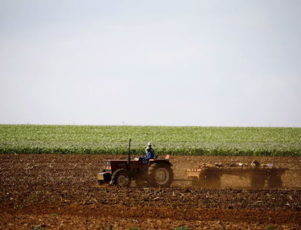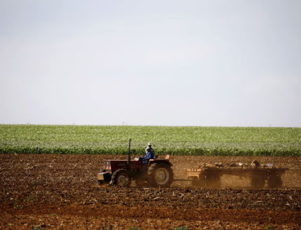HARARE (Reuters) – Zimbabwe has banned grain imports to protect local farmers after producing enough to meet domestic demand, a government minister said on Tuesday, just a year after a devastating drought left more than 4 million people in need of food aid.
The southern African nation’s grain agency has also raised $200 million from the government and private sector to purchase maize from farmers, the Herald newspaper said.
The national treasury last week forecast output of the staple maize at 2.1 million tonnes this year, from 511,000 tonnes in 2016.
“It is true we have banned all grain imports because we have produced enough this year and also because we need to protect our local farmers,” Davis Mharapira, the deputy minister of agriculture said.
Mharapira said the Grain Marketing Board would pay $390 per tonne for white maize, almost triple the $143 for the September contract for white maize in South Africa, one of the countries from which Zimbabwe has previously imported maize.
The deputy minister said the higher price would encourage farmers to produce more maize while the import ban would make it impossible for dealers to buy the grain abroad and resell it at a higher price locally.
Zimbabwe has since 2001 been importing maize to meet domestic demand of 1.8 million tonnes, blamed in part on seizures of white-owned farms by the government of President Robert Mugabe that hit commercial agriculture production.
Mharapira said the national strategic grain reserve was holding 180,000 tonnes of maize, far below its targeted requirements of between 500,000 and 700,000 tonnes.
(Reporting by MacDonald Dzirutwe; Editing by Ed Stoddard and Mark Potter)




